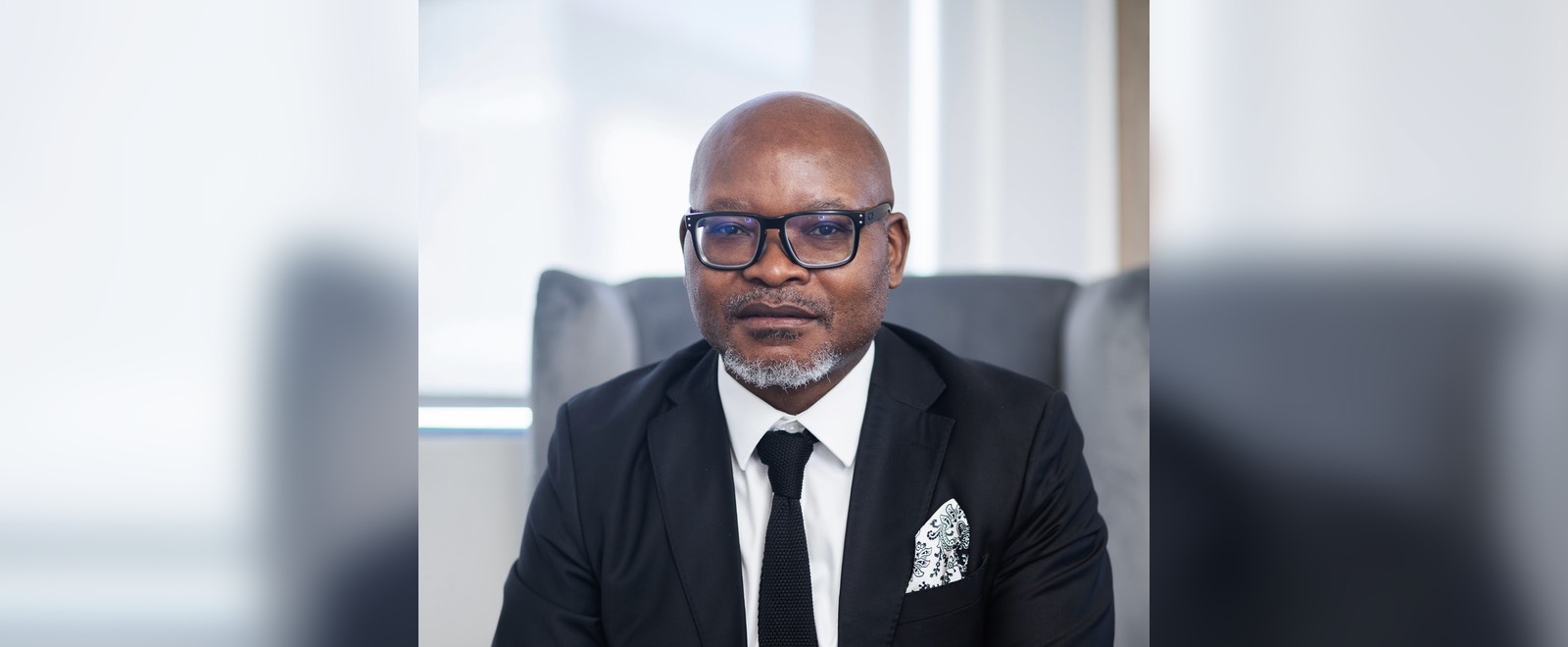From Underdog to Industry Force: The Mianzo Story
Caption:
Luvo Tyandela, Mianzo founder and managing director
📷 SUPPLIED
Luvo Tyandela and his dynamic team of highly-skilled investment professionals have in the past 15 years quietly built Mianzo Asset Management into one of the fastest growing asset managers in SA.
Founded in 2010 by Tyandela, the Cape Town-based asset manager currently manages a R33bn investment portfolio, which is expected to grow exponentially in the coming years. In 2022, Mianzo had approximately R12bn in assets under management (AUM), indicating that the firm has tripled AUM in the past three years.
Last year, the annual 27-four DEI Survey -- which measures diversity, equity, and inclusion -- ranked Mianzo as the the 31st largest asset manager by AUM in SA out of 93 asset managers ranked by the survey. 27four is a leading asset management incubator and a compiler of the DEI survey.
But Mianzo could go up the rankings if it continues to win more mandates to manage clients money, which are mostly institutional investors such as pension funds and medical aid funds.
As Mianzo continues to ride the growth wave in the highly competitive South African asset management industry, which manages about R8.42 trillion in assets, Tyandela has reflected on Mianzo’s journey so far as it celebrates its 15th birthday this year. His reflection is a story of grit and perseverance.
He recently spoke to Next Level about what inspired him to start Mianzo and the challenges he has had to overcome to build an inspiring, values-driven black-owned asset management firm. The firm celebrated its 15th anniversary with the launch of a global equity fund, which it hopes will beat the global benchmarks and deliver returns for its clients, who are retirement savers.
NL: What inspired you to start Mianzo Asset Management and what does it mean for you that the company you started is now 15 years old?
LT: Mianzo was born from a desire to create a world-class, black-owned asset management firm that not only competes on investment performance but also drives meaningful transformation in SA’s financial services landscape. We wanted to build an institution rooted in integrity, analytical depth and a long-term view; one that could stand shoulder to shoulder with the best in the industry.
Reaching 15 years is deeply humbling. It signifies resilience, trust from our clients and is proof that a values-driven approach can endure. It’s not just about longevity; it’s about relevance, impact and legacy.
NL: How did your upbringing contribute to your journey as an entrepreneur?
LT: I grew up in SA during a time of great change, and my upbringing instilled in me a strong sense of independence and purpose, accountability, and the value of education. Being raised in a community where opportunity was hard-won taught me to be resourceful and to believe in the power of preparation. Talking to my mother recently, she reminded me that when I was growing up, I always wanted to do the opposite of what was the norm. I was, and still am, an avid Orlando Pirates fan. I became one because everyone in my household was a Kaizer Chiefs fan. Entrepreneurship was never intentional and definitely never framed as a path to glamour, but rather as a form of responsibility to solve problems, to uplift others and as a means to create space to exercise one’s abilities and build with intention.
NL: What skills and expertise does one need to be a portfolio manager in your industry and thrive?
LT: Technical competence is non-negotiable; you need a strong grasp of financial markets, macroeconomics, risk management, and valuation. But just as important are soft skills, intellectual curiosity, discipline, grit and the humility to learn from your mistakes. In an environment driven by uncertainty, your decision-making process and emotional intelligence often matter just as much as your models. Strong ethics, a client-centric mindset and the ability to communicate investment ideas clearly are also critical. More importantly, continuous learning in the ever-changing global market is extremely important.
NL: At what point did you know you were going to make it as an entrepreneur, and can you describe that moment?
LT: I never really thought of myself as an entrepreneur. The focus was always to create a platform where like-minded individuals could plough their craft in a regulated environment with as little corporate bureaucracy as possible. There wasn’t a single dramatic “aha” moment, but rather a series of quiet confirmations. One such moment was when we secured our first institutional mandate. It wasn’t the largest, but it was symbolic; it meant someone believed in our process, our team, and what we stood for. That mandate said: “You’re not just aspiring, you are delivering.” It was a moment of validation that came after years of groundwork.
NL: Once you realise you can make it as an entrepreneur, what do you need to do to stay there?
LT: Staying there is about discipline. You must keep investing in yourself, your team, your systems and your clients. You need to remain paranoid about complacency. Markets evolve, client needs shift, regulation tightens; staying relevant means staying agile, hungry and principled. Also, you need to maintain a long-term view. Short-term wins are gratifying, but sustainability is built on consistency, risk awareness and trust. More importantly, focus on your area of expertise and strive to be better at what you do continuously.
NL: In asset management, who do you rate as a global icon that inspires you and why?
LT: I admire several icons, but someone like Naseem Taleb is worth singling out. His take on building antifragile systems that provides a framework for understanding and navigating unpredictable Black Swan events is groundbreaking. Antifragility is a concept where entities benefit from volatility and stress, growing stronger when faced with challenges, echoing a philosopher Friedrich Nietzsche’s assertion that adversity can build resilience and inner strength, or what doesn’t kill you makes you stronger. Taleb contends that we should build systems that are “antifragile”, those that get better after experiencing shocks. He provides a framework for understanding and navigating unpredictable Black Swan events. In a unpredictable world, that kind of calm, principled investing is inspiring. Locally, we have seen numerous examples of government bailouts, etc, which exacerbates the problem and rendering such entities fragile. I also admire leaders who have built asset-management houses under challenging conditions and held firm to sound investment principles and ethics.
NL: Growth in your industry depends on you persuading institutional investors to entrust their funds with you. How difficult is this process and how long does it take to shift funds from a rival manager to your firm?
LT: It’s an incredibly rigorous and competitive process, as it should be. Trustees are stewards of pensioners’ money; so trust is earned over time. It can take years of relationship-building, consistent performance, robust risk controls and clear communication. The due diligence processes are intense, from compliance, operations to investment philosophy, risk and people. When a mandate is awarded, it’s not just a transfer of assets, it’s a vote of confidence in your ability to deliver in the long run.
NL: What challenges did you encounter while building Mianzo and how did you overcome them?
LT: Access to capital, market perception and proving our value proposition in a saturated industry were among the biggest early challenges. We had to work twice as hard to get half the attention, especially in an industry where legacy players dominate the narrative.
Contrary to what some may think, people don’t just rise from nothing. Biologists when talking about the ecology of an organism often say that the tallest tree in the forest is the tallest because no other trees blocked its sunlight, and the soil was deep and rich for its roots to grow strong. Firstly, there were financial entities like the National Empowerment Fund that took a chance on our business plan and followed through with the idea of broadening black economic participation in the asset management sector in particular. Secondly, we cannot forget our involvement in a number of incubation programmes offered by the likes of 27Four and others, that gave this team extraordinary opportunities. We will forever be grateful to those industry leaders who took a chance on this team. What seemed at the time like micro-management within these incubation programmes was in effect a blessing, as they created necessary guardrails within which to operate. We overcame these hurdles through consistency, a disciplined investment process and building a credible, values-aligned team. But just as importantly, we listened; we paid close attention to clients’ feedback, whether it was around reporting, business etiquette, communication, or risk preferences. When clients offered advice or challenged us, we didn’t get defensive; we saw it as an opportunity to improve. That openness helped strengthen our relationships and refined our offering in ways that built long-term trust.
NL: What advice would you give to young people who aspire to go into asset management?
LT: Asset management is a competitive but rewarding field that combines analytical thinking and financial acumen. Start with genuine curiosity about where your strengths in the financial services sector lie. Develop skill sets that will enable a thorough understanding of the field. Read broadly, not just finance; and cultivate a deep understanding of people, their behaviour, and macro-economic trends. Get comfortable with delayed gratification. Be prepared to do the unglamorous work: research, analysis, and stress-testing ideas. It’s not about chasing fame, it’s about managing risks and responsibilities. Also, build networks early, find mentors and stay ethical. Integrity travels further than any spreadsheet.


